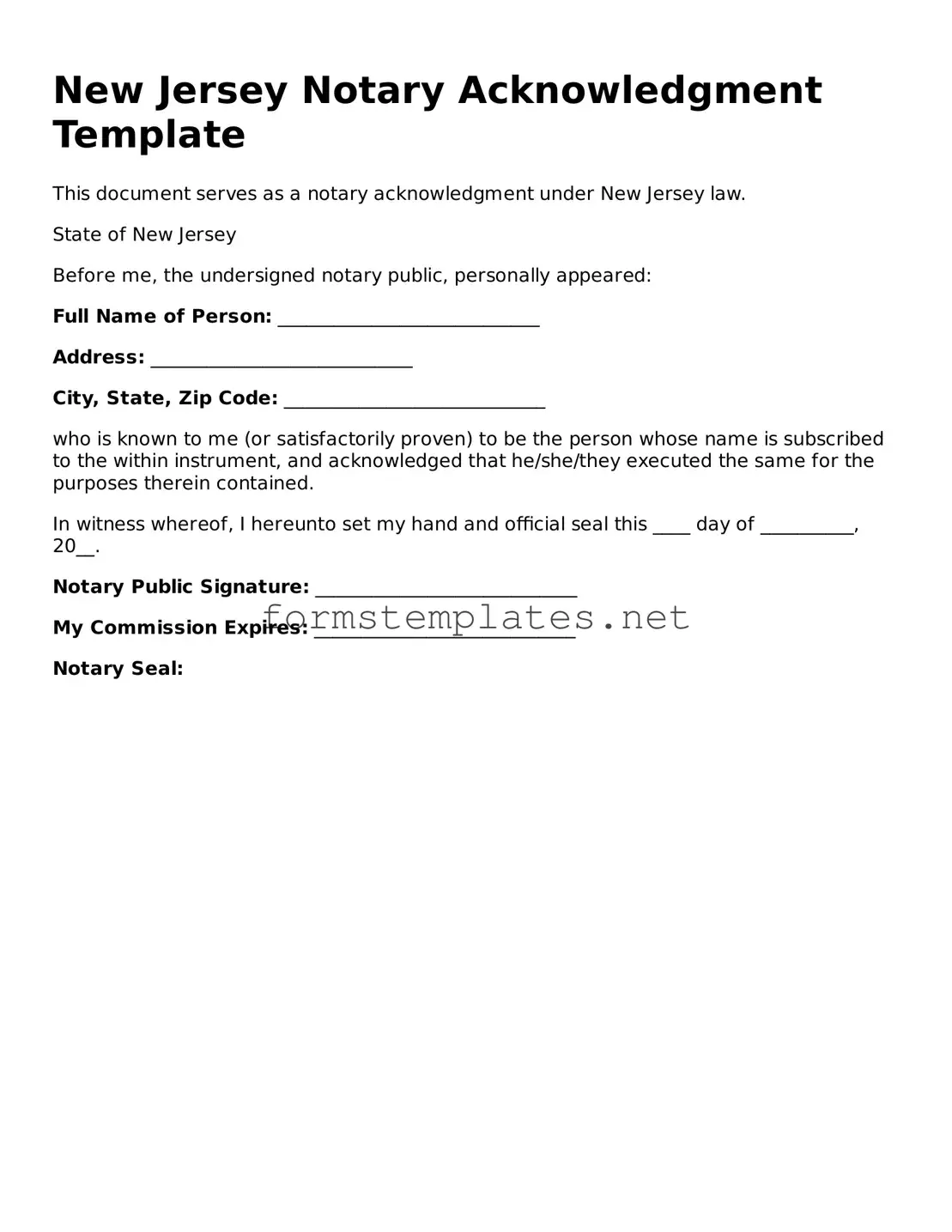Attorney-Approved New Jersey Notary Acknowledgement Template
The New Jersey Notary Acknowledgement form is a document used to verify the identity of individuals signing a legal document. This form serves as proof that the signer appeared before a notary public and acknowledged their signature. Understanding its purpose and proper use is essential for ensuring the validity of various legal transactions in New Jersey.
Open Editor Now

Attorney-Approved New Jersey Notary Acknowledgement Template
Open Editor Now

Open Editor Now
or
⇓ PDF Form
Your form still needs attention
Finalize Notary Acknowledgement online — simple edits, saving, and download.